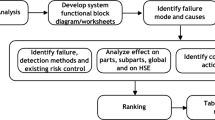Abstract
This paper introduces the notion of epistemic debt as an analytical tool for understanding and managing the effects of technical ignorance in smart manufacturing. Drawing on the concepts of technical and social debt from software engineering, the metaphor of epistemic debt refers to the implied long-term costs of rework (e.g., redesign, replacement, reconfiguration or systems and/or organizational structures) caused by a lack of understanding and/or means of knowing the internals of complex software-based manufacturing systems essential to the value chain and core business of an organization. After defining the concept, we identify three of its sources and propose strategies for coping with epistemic debt in manufacturing.
Access this chapter
Tax calculation will be finalised at checkout
Purchases are for personal use only
Similar content being viewed by others
Notes
- 1.
Technical debt (also known as design debt or code debt) is a concept in software development that reflects the implied cost of additional rework caused by choosing an easy solution now instead of using a better approach that would take longer [3].
- 2.
Social debt is analogous to technical debt in many ways: it represents the state of software development organizations as the result of “accumulated” decisions. In the case of social debt, decisions are about people and their interactions [4].
References
Ionescu, T.B.: When software development meets the shopfloor: the case of industrial fablabs. In: Proceedings of the 40th International Conference on Software Engineering: Companion Proceedings (ICSE 2019). IEEE (2019)
Ionescu, T.B.: Developing software for the shop-floor on the shop-floor. In: Proceeding of IEEE/ACM 12th International Workshop on Cooperative and Human Aspects of Software Engineering (CHASE). IEEE (2019)
Kruchten, P., Nord, R.L., Ozkaya, I.: Technical debt: from metaphor to theory and practice. IEEE Softw. 29(6), 18–21 (2012)
Tamburri, D.A., Kruchten, P., Lago, P., Van Vliet, H.: Social debt in software engineering: insights from industry. J. Internet Serv. Appl. 6(1), 10 (2015)
Humphreys, P.: The philosophical novelty of computer simulation methods. Synthese 169(3), 615–626 (2009)
Ionescu, T.B., Merz, M.: Cyber-physische Produktion: Modelle und Inszenierung der Smart Factory. Arbeits- und Industriesoziologische Studien 11(2), 247–261 (2018)
Wimsatt, W.: Re-engineering Philosophy for Limited Beings: Piecewise Approximations to Reality. Harvard University Press, Cambridge (2007)
Kelty, C., Erickson, S.: The durability of software. In: Kaldrack, I., Leeker, M. (eds.) There is no Software, There are Only Services, pp. 39–56. Meson Press, Lüneburg (2015)
Ionescu, T.B.: Simulation, epistemic opacity, and ‘Envirotechnical Ignorance’ in Nuclear Crisis. Minds Mach. 29, 1–26 (2018)
Meijer, E.: Behind every great deep learning framework is an even greater programming languages concept. In: Proceedings of the 26th ACM European Software Engineering Conference and Symposium on the Foundations of Software Engineering, p. 1. ACM (2018)
Ansari, F., Erol, S., Sihn, W.: Rethinking human-machine learning in industry 4.0: how does the paradigm shift treat the role of human learning? In: 8th Conference on Learning Factories 2018 - Advanced Engineering Education & Training for Manufacturing Innovation. Procedia Manufacturing, vol. 23, 117–122 (2018)
Wilson, B.G.: Constructivist learning environments: case studies in instructional design. Educational Technology (1996)
Baxter, G., Rooksby, J., Wang, Y., Khajeh-Hosseini, A.: The ironies of automation … still going strong at 30?. In: Turner, P., Turner, S. (eds.) Proceedings of the 30th European Conference on Cognitive Ergonomics, New York, USA, pp. 65–71 (2012)
Ansari, F., Hold, P., Mayrhofer, W., Schlund, S., Sihn, W.: AUTODIDACT: introducing the concept of mutual learning into a smart factory industry 4.0. In: Proceedings of 15th International Conference on Cognition and Exploratory Learning in Digital Age (CELDA 2018), Budapest, Hungary (2018)
Acknowledgements
This research was supported by the by the Austrian Research Promotion Agency through the HCCPPAS grant and the “Trust in Robots” Doctoral College of the TU Wien.
Author information
Authors and Affiliations
Corresponding author
Editor information
Editors and Affiliations
Rights and permissions
Copyright information
© 2020 Springer Nature Switzerland AG
About this paper
Cite this paper
Ionescu, T.B., Schlund, S., Schmidbauer, C. (2020). Epistemic Debt: A Concept and Measure of Technical Ignorance in Smart Manufacturing. In: Nunes, I. (eds) Advances in Human Factors and Systems Interaction. AHFE 2019. Advances in Intelligent Systems and Computing, vol 959. Springer, Cham. https://doi.org/10.1007/978-3-030-20040-4_8
Download citation
DOI: https://doi.org/10.1007/978-3-030-20040-4_8
Published:
Publisher Name: Springer, Cham
Print ISBN: 978-3-030-20039-8
Online ISBN: 978-3-030-20040-4
eBook Packages: EngineeringEngineering (R0)




